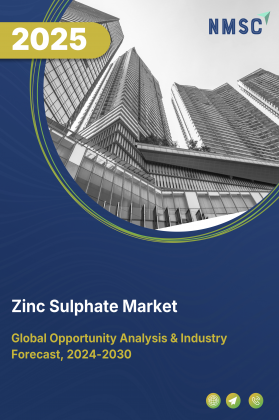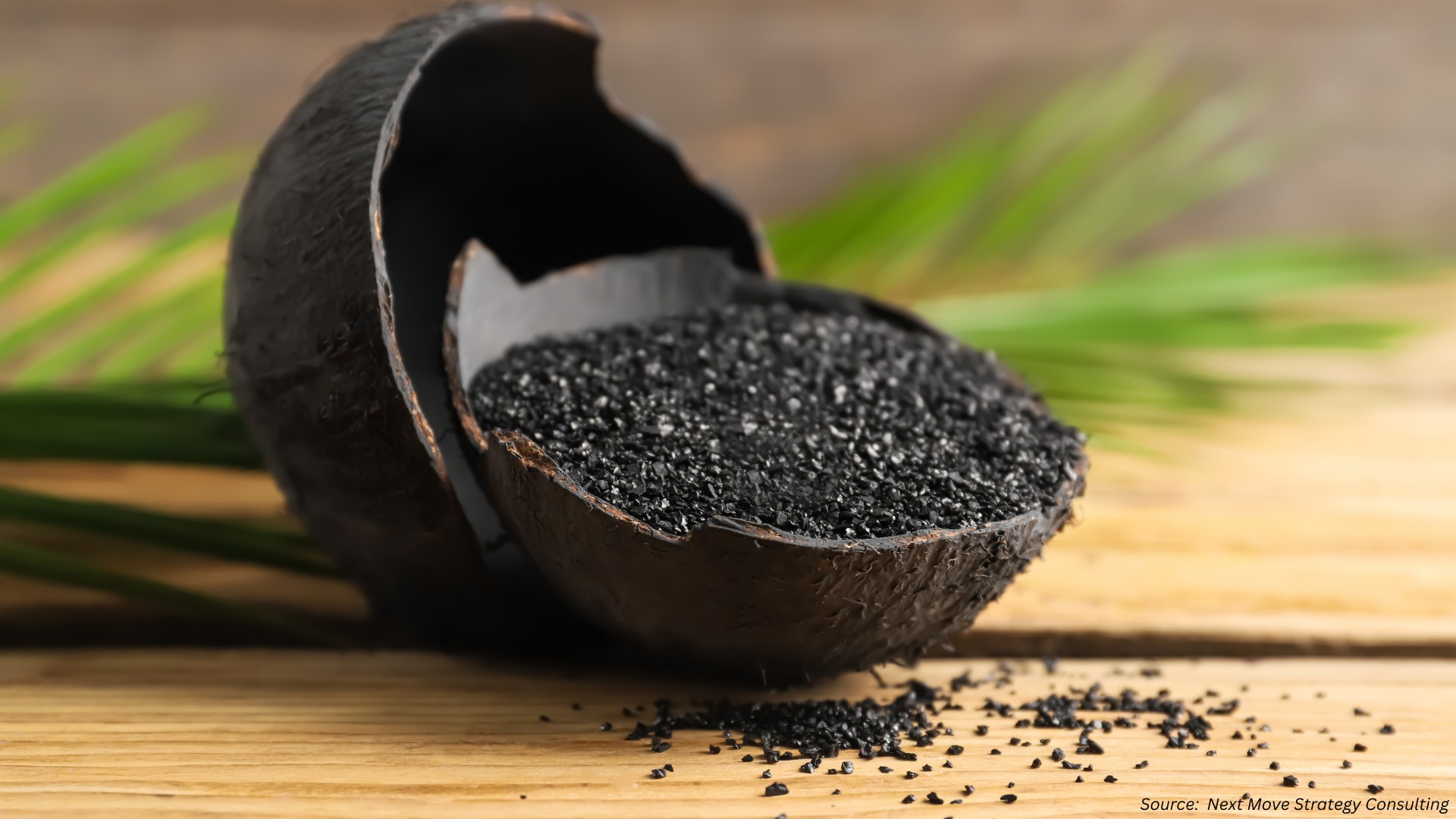
Zinc Sulphate Market by Product Type (Anhydrous, Monohydrate, Hexahydrate, Heptahydrate and Others), by Formulation (Dry Powder, Granules, Liquid Solution, and Others), by Quality Grade (Industrial Grade, Agricultural Grade, Food Grade, and Others), by Distribution Channel (Bulk Supply, Packaged Retail, Online Sales and Others), and by Application (Agriculture, Animal Nutrition, Human Health & Nutrition and Others) – Global Opportunity Analysis and Industry Forecast, 2025–2030.
Industry Outlook
The global Zinc Sulphate Market size was valued at USD 2.14 billion in 2024, with an estimation of USD 2.30 billion in 2025 and is predicted to reach USD 3.25 billion by 2030 with a CAGR of 7.2% from 2025-2030. The industry is witnessing robust growth, driven primarily by its widespread use in agriculture, pharmaceuticals, and animal feed.
In agriculture, zinc sulphate corrects zinc-deficient soils, enhancing crop yield, quality, and disease resistance. Its pharmaceutical applications, including dietary supplements and therapeutic formulations, support immune function and overall health, boosting demand. In the animal feed sector, it improves growth, reproduction, and immunity in livestock, aligning with rising meat and dairy consumption.
While high production costs pose a challenge, expanding industrial applications in electroplating, water treatment, dyeing, and chemical manufacturing offer significant growth opportunities, enabling market players to diversify and cater to emerging demand across multiple sectors.
Agricultural Demand Boosts the Market Expansion
A major driver of the zinc sulphate market growth is its use in agriculture to correct zinc-deficient soils, which are prevalent in many regions. Zinc is essential for plant growth, aiding in enzyme activation, protein synthesis, and chlorophyll formation. Its application improves crop yield, quality, and resistance to diseases, making it indispensable for farmers aiming to maximize productivity. The increasing focus on sustainable agriculture, government initiatives promoting soil health, and rising global food demand are driving farmers to adopt zinc sulphate more widely, thereby boosting industry growth.
Pharmaceutical Applications Drive the Market Growth
The growing need for zinc sulphate in the pharmaceutical sector acts as a key driver for the zinc sulphate market demand. Zinc sulphate is widely used in dietary supplements and medications to treat zinc deficiencies, which are linked to immune dysfunction, delayed wound healing, and various metabolic disorders. Its essential role in supporting immune function, cellular metabolism, and overall health has increased its adoption in health products.
Rising health awareness and the prevalence of zinc deficiency worldwide are encouraging pharmaceutical manufacturers to incorporate zinc sulphate into supplements and therapeutic formulations, thereby boosting market growth.
Animal Feed Industry Fuels the Market Demand
The use of zinc sulphate in the animal feed industry is a significant driver of the zinc sulphate market expansion. Zinc sulphate is added to livestock feed to support growth, reproduction, and immune system function in animals. It helps prevent zinc deficiency, which lead to poor weight gain, reproductive issues, and weakened immunity in livestock.
With the rising demand for meat, dairy, and poultry products worldwide, farmers and feed manufacturers are increasingly incorporating zinc sulphate into animal diets to enhance productivity and overall animal health, thereby driving the growth of the sector.
High Production Costs Limits the Market Growth
One major restraint limiting the growth of the zinc sulphate market is the high production cost associated with its manufacturing. The extraction and processing of zinc, along with purification to produce high-quality zinc sulphate, require significant investment in raw materials, energy, and advanced equipment.
These costs make zinc sulphate relatively expensive compared to alternative micronutrient sources, limiting its adoption, especially among small-scale farmers and in price-sensitive markets. Consequently, high production costs act as a barrier, slowing the overall market expansion.
Expansion in Industrial Applications Creates New Growth Opportunities for the Market
The increasing use of zinc sulphate in various industrial applications presents a significant growth opportunity. Zinc sulphate is used in electroplating, water treatment, dyeing, and as a precursor for pigments and chemicals. As industries modernize and adopt advanced manufacturing processes, the demand for high-purity zinc sulphate is expected to rise. This trend allows manufacturers to diversify their product applications and tap into new industrial segments, driving overall market growth.
Market Segmentation and Scope of the Study
The zinc sulphate market report is divided on the basis of product type, formulation, quality grade, distribution channel, application, and region. On the basis of product type, the market is grouped into anhydrous, monohydrate, hexahydrate, heptahydrate, and others. On the basis of formulation, the market is categorized into dry powder, granules, liquid solution, and others. On the basis of quality grade, the market is divided into industrial grade, agricultural grade, food grade, and others. On the basis of distribution channel, the market is segmented into bulk supply, packaged retail, online sales, offline sales, and others. On the basis of application, the market is grouped into agriculture, water treatment, cosmetics & personal care, and others. Regional breakdown and analysis of each of the aforesaid segments includes regions comprising of Asia-Pacific, North America, Europe, and RoW.
Geographical Analysis
A key driver of the zinc sulphate market share in North America is the modernization and intensification of agriculture. Farmers are increasingly adopting advanced fertilization practices to improve crop yield and quality, including the use of micronutrients like zinc sulphate. The prevalence of zinc-deficient soils in certain regions, combined with government initiatives promoting sustainable farming and soil health programs, is driving the demand for zinc sulphate. This adoption supports higher productivity and food quality, making North America an important growth region for the zinc sulphate market.
A major driver of the market in Europe is the increasing emphasis on sustainable and eco-friendly agricultural practices. European farmers are adopting micronutrient-enriched fertilizers, including zinc sulphate, to enhance soil fertility, crop yield, and quality while reducing environmental impact. Government regulations and EU initiatives promoting soil health and nutrient management further support the adoption of zinc sulphate. This focus on sustainable farming practices is driving market growth across the European region.
The growing awareness of zinc’s health benefits is driving the demand for zinc sulphate in the pharmaceutical and nutraceutical industries across the Asia Pacific region. Zinc sulphate is widely used in dietary supplements, fortified foods, and medications to prevent or treat zinc deficiency, supporting immune function, wound healing, and overall metabolic health. According to the India Brand Equity Foundation (IBEF) in 2025, the Indian pharmaceutical market is expected to grow from USD 65 billion in 2024 to approximately USD 130 billion by 2030 and reach USD 450 billion by 2047. This rapid expansion highlights the rising opportunities for zinc sulphate adoption in pharmaceutical applications, particularly in the Asia Pacific region, further propelling market growth.
A key driver of the market in the Rest of the World (RoW) is its increasing use in various industrial applications. Zinc sulphate is utilized in water treatment, electroplating, dyeing, and as a precursor for chemicals and pigments. Expanding industrialization in regions such as Africa, the Middle East, and Latin America is driving the demand for high-purity zinc sulphate to support manufacturing processes and environmental management. This growing industrial adoption in emerging markets outside major regions like North America, Europe, and Asia Pacific is propelling market growth across the Rest of the World.
Strategic Innovations Adopted by Key Players
The zinc sulphate industry is witnessing growth driven by a mix of strategies across leading companies. Agro-focused players like Balaji Industries, Sulfozyme Agro, Ravi Chem, and Tianjin Topfert are expanding by addressing soil micronutrient deficiencies and building strong farmer networks.
Large-scale producers such as Zinc Nacional, China Bohigh, and Rech Chemical are strengthening their positions through recycling, cost efficiency, and global distribution reach. Meanwhile, specialty suppliers including Merck KGaA, Sigma Aldrich, and Old Bridge Chemicals are differentiating themselves with high-purity and pharmaceutical-grade offerings, tapping into healthcare and industrial demand.
Regional players like Alpha Chemicals, Lantian Chemical, Newsky, and Oasis Fine Chem continue to grow steadily by ensuring reliable supply, tailored packaging, and multi-product portfolios, positioning the overall industry for balanced expansion across agriculture, healthcare, and industrial applications.
Key Benefits
-
The report provides quantitative analysis and estimations of the industry from 2025 to 2030, that assists in identifying the prevailing market opportunities.
-
The study comprises a deep-dive analysis of the current and future zinc sulphate market trends to depict prevalent investment pockets in the sector.
-
Information related to key drivers, restraints, and opportunities and their impact on the market is provided in the report.
-
Competitive analysis of the players, along with their market share is provided in the report.
-
SWOT analysis and Porters Five Forces model is elaborated in the study.
-
Value chain analysis in the market study provides a clear picture of roles of stakeholders
Zinc Sulphate Market Key Segments
By Product Type
-
Anhydrous
-
Monohydrate
-
Hexahydrate
-
Heptahydrate
-
Others
By Formulation
-
Dry powder
-
Granules
-
Liquid solution
By Quality Grade
-
Industrial grade
-
Agricultural grade
-
Food grade
By Distribution Channel
-
Bulk supply
-
Packaged retail
-
Online sales
-
Offline sales
-
Others
By Application
-
Agriculture
-
Soil fertilizers
-
Foliar sprays
-
Seed coatings
-
-
Animal Nutrition
-
Human Health & Nutrition
-
Industrial & Chemical
-
Synthetic fibers
-
Electroplating electrolytes
-
Pigments & dyes
-
Adhesives, flotation agents
-
Leather
-
Desulfurization, glue clarification
-
-
Water Treatment
-
Algae
-
Wastewater treatment chemicals
-
-
Cosmetics & Personal Care
-
Skincare
-
Oral hygiene products
-
Deodorants
-
By Region
-
North America
-
The U.S
-
Canada
-
Mexico
-
-
Europe
-
The UK
-
Germany
-
France
-
Italy
-
Spain
-
Denmark
-
Netherlands
-
Finland
-
Sweden
-
Norway
-
Russia
-
Rest of Europe
-
-
Asia-Pacific
-
China
-
Japan
-
India
-
South Korea
-
Australia
-
Indonesia
-
Singapore
-
Taiwan
-
Thailand
-
Rest of Asia-Pacific
-
-
Rest of the World
-
Latin America
-
Middle East
-
Africa
-
Key Players
-
Rech Chemical Co. Ltd
-
Alpha Chemicals
-
Zinc Nacional
-
Ravi Chem Industries
-
Balaji Industries
-
Tianjin Topfert Agrochemical Co.
-
Old Bridge Chemical, Inc
-
China Bohigh
-
Changsha Haolin Chemicals Co. Ltd
-
Sulfozyme Agro India Pvt. Ltd
-
Newsky
-
Lantian Chemical
-
Merck KGaA
-
Oasis Fine Chem.
Report Scope And Segmentation
|
Parameters |
Details |
|
Market Size in 2025 |
USD 2.30 Billion |
|
Revenue Forecast in 2030 |
USD 3.25 Billion |
|
Growth Rate |
CAGR of 7.2% from 2025 to 2030 |
|
Analysis Period |
2024–2030 |
|
Base Year Considered |
2024 |
|
Forecast Period |
2025–2030 |
|
Market Size Estimation |
Billion (USD) |
|
Growth Factors |
|
|
Countries Covered |
28 |
|
Companies Profiled |
15 |
|
Market Share |
Available for 10 companies |
|
Customization Scope |
Free customization (equivalent to up to 80 working hours of analysts) after purchase. Addition or alteration to country, regional, and segment scope. |
|
Pricing and Purchase Options |
Avail customized purchase options to meet your exact research needs. |
















 Speak to Our Analyst
Speak to Our Analyst

























